Buying a New Laptop? - We have prepared the ultimate buying guide for you
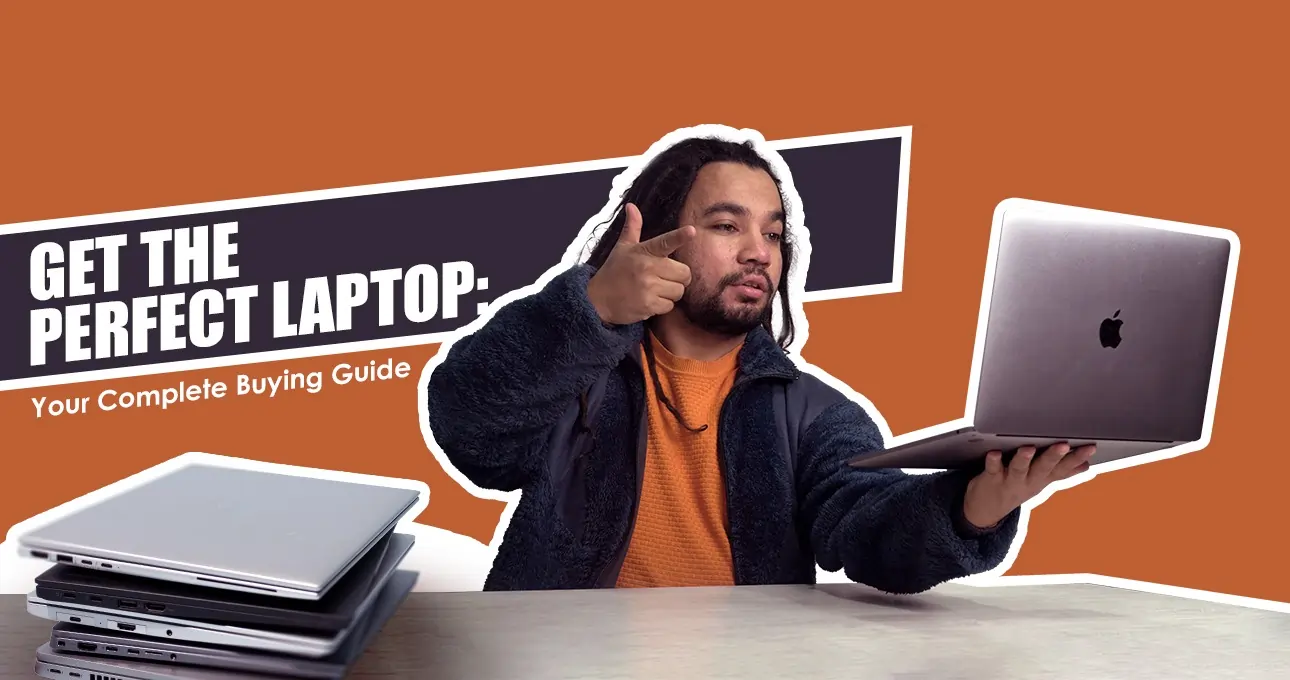
Let's Know about the Usage of the laptop
Light use: You use it for Internet browsing, online bill payment, email, social networking, digital photo organization, and sharing.
Moderate use: You create spreadsheets and documents regularly. Besides official things, you also use it for storing and streaming music and movies.
Demanding Use: You use it for multitasking with several tabs and apps, advanced graphics, and picture editing or video production.
If your use case falls under "demanding,” you should look for a laptop with the following features:
- A better resolution screen.
- A more powerful CPU
- More system memory and a larger hard disc or a quick solid-state drive (SSD).
How to know if it’s the right laptop for you?
You can tell a lot about the laptop just by holding it, but that is not enough! You should also be careful about its build and system. Besides how sleek the design is and how cool that backlit keyboard looks, you should also make sure you are getting a device that operates smoothly.
Here is your checklist to check on any laptop you are planning to buy:
- Operating System (OS)
- Screen features and Resolution
- Processors
- Memory
- Internal Storage
- Battery Life
Now, let's deep-dive into what exactly you should look for in everything on the above-listed checklist.
First, choose your operating system. Here is an overview of all 4 types of OS available in the market:
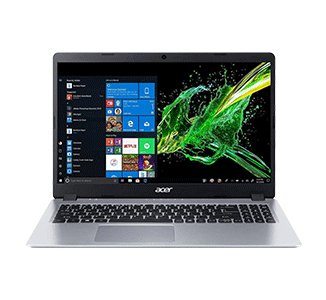
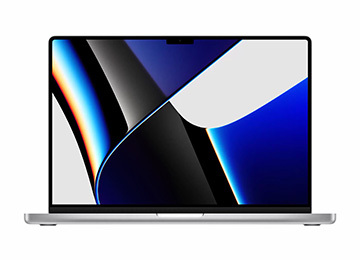
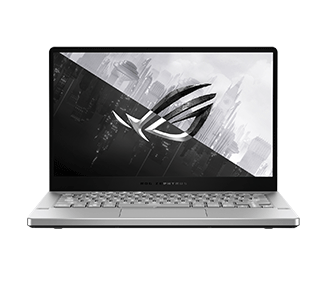
Windows
You might already know that Windows comes preinstalled on new PCs. A majority of the population uses Windows, it is known to be the world's most popular and widely used operating system. So, what to expect if you are going for Windows OS?
- Built-in protections for your data
- Security of business information and personal identities even if the laptop gets stolen or lost.
- And, if your work requires the use of Microsoft applications such as MS Office, Access, or Outlook, then windows is the best option.
MacOS
There is a reason why MacOS is the most popular. It is beginner friendly and does its job like no other OS. macOS is the operating system that runs on all Macs. It allows you to perform things that other computers simply cannot. So, what to expect if you are going for MacOs:
- Works with iCloud to keep photos and documents
- Works best if you have an Apple eco-system i.e. iPhone and other apple devices
- Data security and privacy without a doubt.
Linux
You can install Linux on almost any piece of laptop hardware ever manufactured. If you don't require MS Office for your daily use you can go for Linux. So, what can you expect to have if you are going for Linux:
- Linux is a free and open-source operating system.
- Reasonable and hence fits your tight budget
- Customizable. Yes! you can tweak any feature, and add or remove any feature as needed.
After you have confirmed your OS, you move on to the next step, which is selecting your processor.
Processors
Apple Processor
Apple processors are known to be one of the best processors available on the market. If you compare M1 chips with Intel chips, you probably know that the M1 chip offers up to 3.5x faster CPU performance, up to 6x faster GPU performance, and up to 15x faster machine learning capabilities.
Here are some perks of using Apple processors:
- The M1 Max is constructed using a 5-nanometer process and has 57 billion transistors.
- High performance.
- Best for designers, video editors. If you have to use designing and editing tools like CAD, 3D modeling, Adobe Suite Apple is the best.
Intel Processor
If you are already using Intel processors, you may agree with this; Intel has established itself as a household name. Intel's processor advancements in Ethernet, USB, and the creation of the microprocessor outshine every other competitor in the market. Here are some perks of using an Intel processor:
- Core i7 and Core i9 processors are better choices for more demanding environments.
- Intel's Core i5 processor family will be the best option for your general computing needs.
AMD Processor
AMD is a formidable rival in the market. It fills the gap where Intel lacks capabilities of fulfilling the high demand graphic uses. AMD also provides more advanced onboard graphics.
Here are some perks of using AMD processors:
- Laptops powered with Ryzen processors often run cooler and longer on battery
- If you prefer higher iGPU performance and longer battery life definitely go for Ryzen powered laptops
- Best for designers, video editors and gamers. Ryzen 7 or 9 CPUs or Threadripper are the best available in the market for demanding tasks like video editing and 3D modeling.
Shop by processor brand:
Intel AMD Apple
Have you made a decision about which processor to go with? Great! Now, let's move on to selecting memory and storage.
RAM is crucial because it enables your processor to handle several tasks simultaneously.
If your day to day task looks like using Microsoft Office Suite, browsing, and the other basic uses, then you can go for Pre-Installed RAM of 4GB to 8GB.
If you enjoy graphics and sophisticated photo or video editing you can go with 8GB to 16GB pre-installed RAM with the option to expand.
Most laptops come with 4GB to 16GB of RAM pre-installed, though some can hold up to 64GB. You should go for the expandable RAM if in-case you want to have more space.
Shop laptops with 8GB memory or more

Internal Storage
Hard disk drives
The hard drive is typically the most conventional and still useful storage option (hard disk drive, or HDD), but, it is not the only option. A few laptops are still using mechanical hard drives since they are still comparatively affordable and provide enormous capacities for the money.
Pros
- Comes with two standard speeds - 5400 RPM drives, 7200 RPM drives both are sufficient for carrying out low use.
- Budget friendly. Compared to SSD, HDD laptops are quite affordable.
Cons
- HDD laptops are bulky and huge in size as HDD adds to laptop weight. If you are looking for a sleek designed laptop it is not your choice.
Solid State Drives
SSD laptops are winning the market. They have a slightly higher initial cost than their HDD counterparts, but if you are looking for a fast and lightweight PC, a Solid State Drive (SSD) might be a better choice for you.
Pros
- SSDs outperform hard disk drives in terms of speed.
- If you want to own that sleekly designed laptop, you should definitely go for an SSD.
- Despite being sleek, SSD laptops are the lightest and fastest type.
Cons
- SSDs are quite expensive compared to HDD laptops. If you are looking for a budget-friendly laptop, SSD might not fit in there right yet.
Screen Features
You can select the screen features as per your preference. These days, laptops come with numerous alternatives when it comes to screen features. You can even go with touch screen features if you want that premium touch feature in your laptop.
Touch Screens
Computer navigation is easier with touch-screen laptops. You can simply tap to select, hold and drag to move items, swipe to scroll and pinch to enlarge the icons. The use case is similar to the phone’s screen. It makes navigation quite easy.
Screen Size
You can find laptop screens typically ranging in size from 11 to 17 inches. It is also the best screen size to fit into your laptop bag.
If you are planning to use the laptop for activities like:
- Gaming
- Watching movies
- Editing photos and videos
- Designing
- And other regular uses then you can choose a screen size between 13 to 15 inches.
Unless your work requires specific tasks that require larger screens, you can go above 17 inches. You should keep in mind that a large screen can make a laptop larger and heavier. It can also consume more power.


Resolution
Higher resolution laptop is necessary, as higher resolution delivers better picture quality. If you are planning to buy a laptop for tasks like; designing, video editing, and gaming, you definitely need a higher-resolution laptop.
Here is an overview of the options you can choose from,
4K Ultra HD
Resolutions of 3840 x 2560 and 3840 x 2160 provide four times the pixels of Full HD, resulting in rich colors and visuals for watching and editing amazingly realistic images and graphics.
QHD (Quad HD) and QHD+
If you are looking for incredibly high pixel density this resolution offers fine detail and clear writing. It is excellent for professional picture and graphics work, as well as high-definition movies and games, with resolutions of 2560 x 1440 and 3200 x 1800, respectively.
Retina display
It probably is one of the best displays you can find in the market. If you are looking for a retina display you can choose Apple's 13" and 16" laptops. Their screens have resolutions of 2560 x 1600 and 3072 x 1920, respectively.
Full HD
Full HD is the 1920 x 1080 resolution where you can even watch HD movies and play video games in premium quality without losing any amount of detail.
HD+
A resolution of 1600 x 900 is ideal for casual gaming and watching DVD movies. If you are using the laptop for basic gaming or designing HD+ will do a great job.
HD
On most computers, the resolution is 1366 x 768. Excellent for online browsing, email, and other computing chores.
After you have completed selecting the screen, your next step will be to check the battery power and life.
Battery Life
The battery life usually claims to be from 5 hours to 12 hours depending upon how you use the laptop. If the use is demanding the battery life can expire sooner.
Additional Features
Connectivity
You can find most of the laptops already provide a variety of choices for maintaining a connection to the internet and other devices.
The majority of laptops are equipped with,
- Bluetooth
- Wifi (Wireless)
- Ethernet (Wired Networking)
Port
USB Type-A
You can connect external drives, game controllers, headphones, and other devices with this old port.
When utilized with USB 3.0 devices, USB 3.0 ports are identified by a blue insert and transfer data more quickly than USB 2.0 connections. They can only operate at 2.0 Mbps but are backward compatible with older USB 2.0 devices.
USB Type-C
This most recent version offers lightning-fast speeds and flexible power. In USB-C, connections with identical ends can be inserted either upside-down or right-side-up. Video and Type-A port backward compatibility are both possible with adapters.
Thunderbolt
You need Thunderbolt or MiniDisplayPort connections between devices with ultra-high bandwidth for quick data transmission.
HDMI or mini HDMI
Look for HDMI or a mini HDMI port in a laptop. It is essential if you need to connect a projector or a display on your TV. (even though this can be also done with type C cables these days)
Media card slots
Even if just the availability of media card slots should not be an impactful feature on your buying decision. However, it won't hurt to check for media card slots because it will be helpful to transfer the media files from the memory card to and from your computer.
Security
To keep your confidential data and information safe a good security feature is important in a laptop. Initially, every laptop comes with an inbuilt password protection system for you to unlock and access the device. If you are looking for more prominent security options you can choose from models like:
- Fingerprint readers - to unlock your PC
- Privacy shutters - to prevent hackers from accessing your web camera
- Kill switches - also prevents your camera from being accessed by hackers.
Gaming Laptops
Performance, portability, and affordability are the 3 criteria used to choose the best gaming laptop. For all save the highest-powered configurations, gaming laptops are a genuine option to desktop PCs because of their evolution to meet the demands of even the most hardcore gamers.
When purchasing a gaming laptop, you don't simply consider the technical specifications. A complete computer with a built-in keyboard and monitor is what you are seeing.
To help you choose the best gaming laptop for your requirements and price range, we've outlined all the choices you'll need to make below:
- Advanced processors so that the performance will never lag
- High-end graphics cards
- Enhanced sound system/speakers
- Larger Screen sizes for better display
- Long Battery life
- Programmable keys
- RGB backlit keyboards for that ultimate gaming experience
- Additional ports for convenient connectivity
It's normally impractical to upgrade a gaming laptop's hardware, therefore it's crucial that you look ahead and consider your use requirements before buying. Setting the features that matter to you the most as priorities is a wonderful start.
Laptop Accessories
If you are reading this step, you probably already know your next purchase. Now, let's do a quick tour of the accessories you can get for your laptop. It is all about what your laptop might need as protection or a performance enhancer.
Sleeves and Bags: To easily carry and safe-keep your laptop.
Mouse: Provides precise control and quick navigation. A mouse is essential if you are a gamer or a designer.
Keyboard protector: Protects from corrosion damage from liquid spills and dust and particle accumulation in the Keyboard.
Storage Drives: Provides more storage space and quicker speeds, upgrading the capacity of your laptop.
Printer: You can also buy printers if you have to frequently print office reports or assignments.
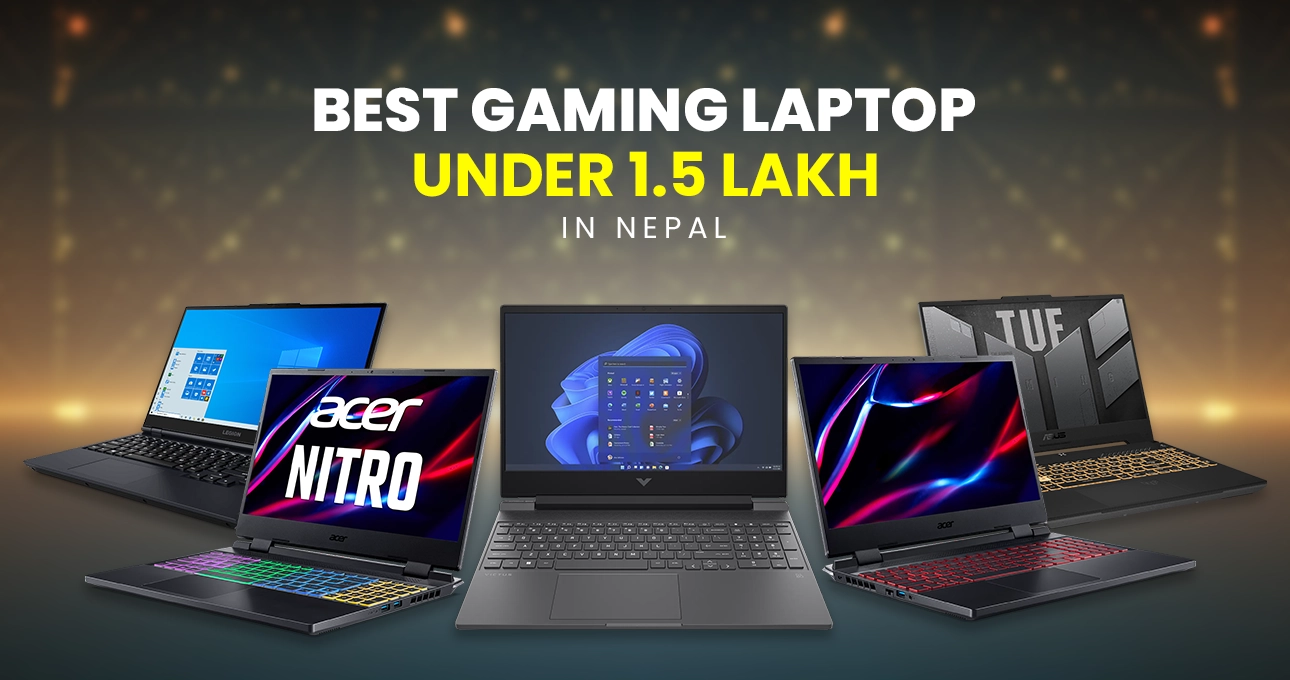
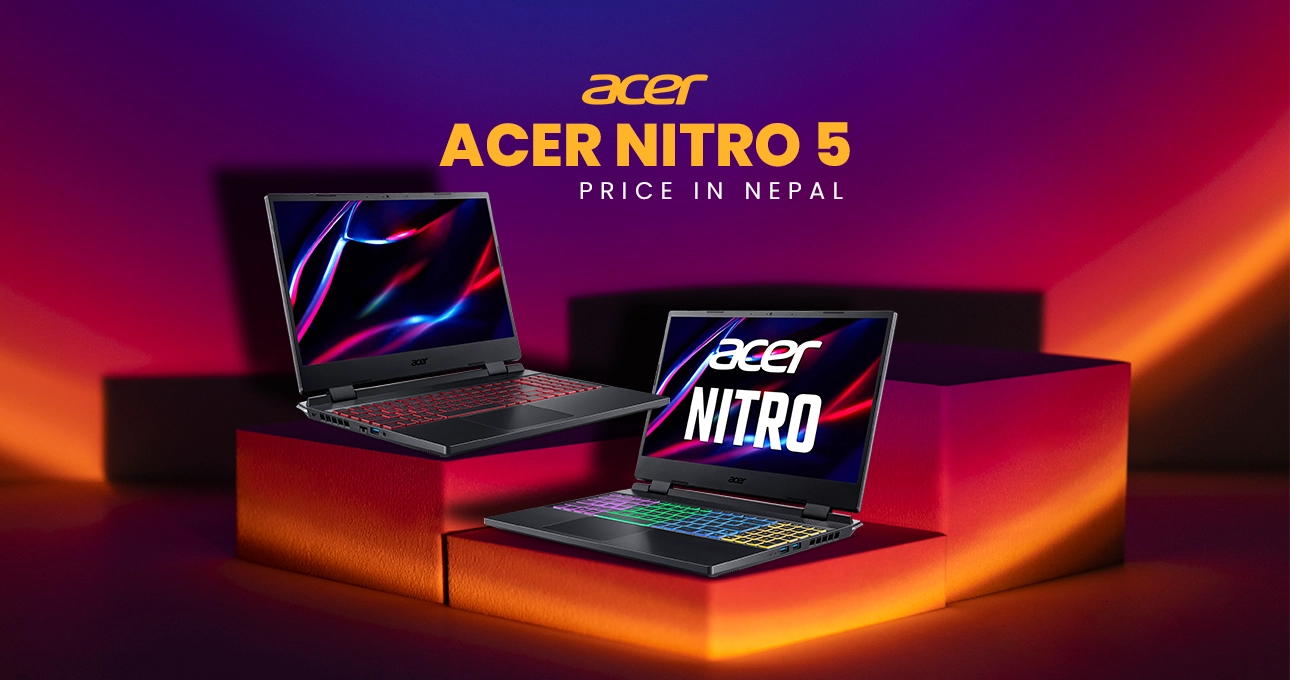
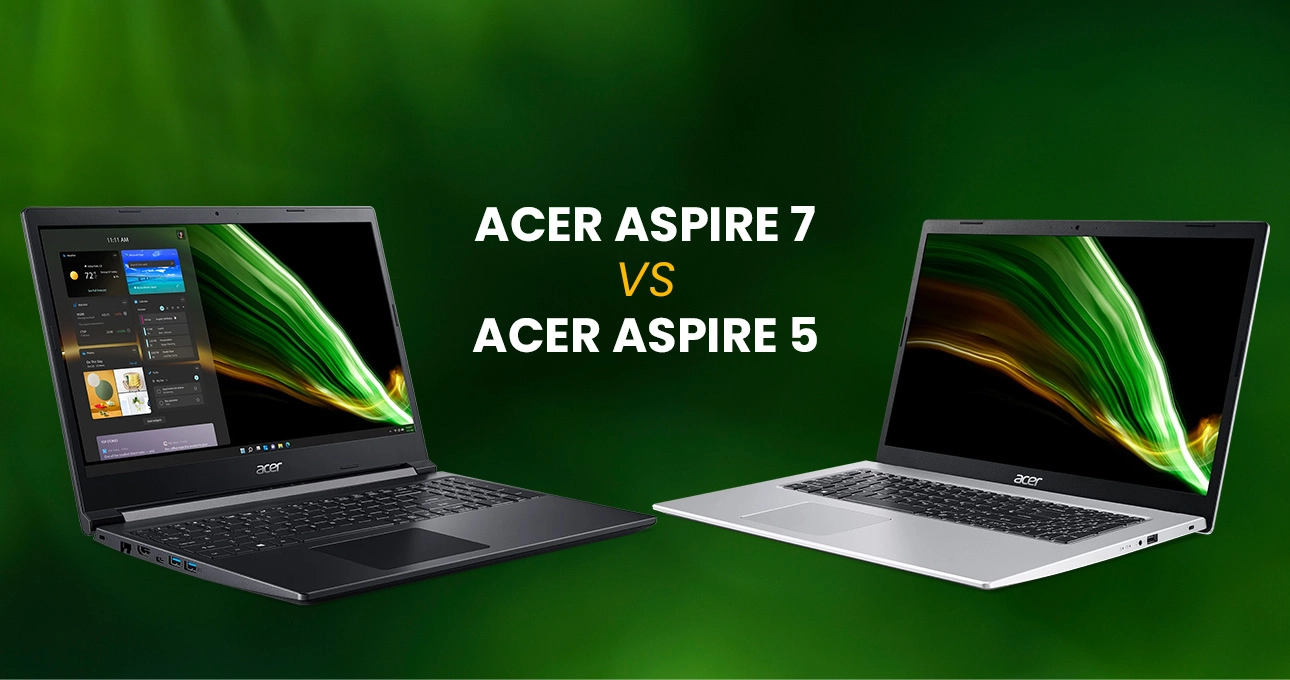
![Best Ultrabook Under 1 Lakh in Nepal: Updated [2023]](https://mudita.com.np/media/magefan_blog/best-ultrabooks-under-1-lakh-in-nepal.webp)
The information below is required for social login
Sign In to Your Account
Register a Mudita Account